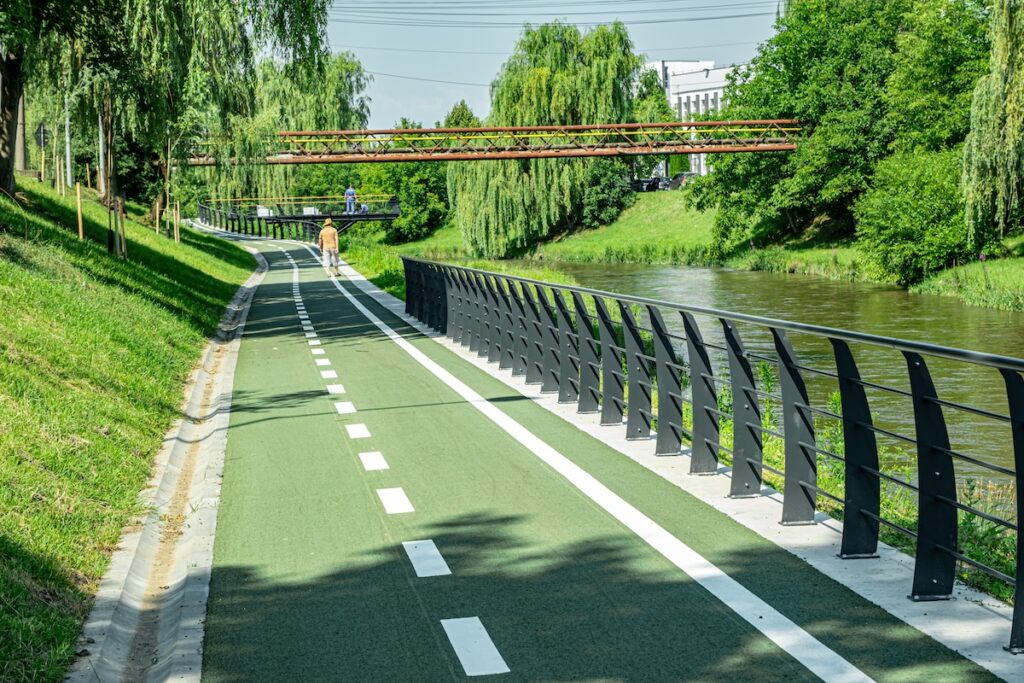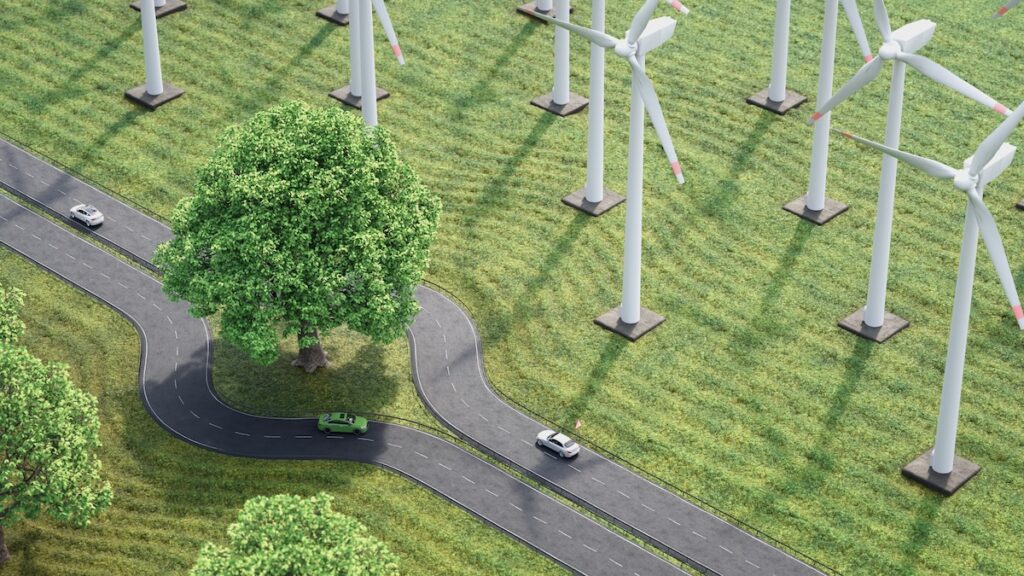With the increasing concern about minimizing our impact on the environment, sustainable road construction, eco-friendly road technologies, and green transportation solutions have gained significant importance.
The concept of ecological road solutions revolves around the idea of creating environmentally friendly road infrastructure that reduces carbon emissions and preserves the natural environment for future generations.
By incorporating sustainable road construction practices and utilizing eco-friendly road technologies, we can pave the way for a more sustainable transportation network.
This article will explore the importance of sustainable road construction, innovative road solutions for environmental preservation, the benefits of ecological road solutions for sustainable travel, the role of technology in driving these solutions, and the need for collaboration among stakeholders to achieve sustainable road infrastructure.
The Importance of Sustainable Road Construction
Sustainable road construction plays a crucial role in creating environmentally-friendly transportation systems. By using eco-friendly road technologies and implementing green road construction practices, we can reduce the carbon footprint of road infrastructure.
This includes using low-carbon road materials, such as recycled asphalt and concrete, as well as incorporating sustainable drainage systems to minimize water runoff.

Reducing Environmental Impact
- Using eco-friendly road technologies helps to reduce carbon emissions and preserve air quality.
- Green road construction practices minimize the environmental impact of road infrastructure.
- Incorporating sustainable drainage systems reduces water runoff and helps protect natural waterways.
Promoting Sustainability
- Low-carbon road materials, such as recycled asphalt and concrete, contribute to the overall sustainability of the transportation network.
- By adopting sustainable road construction practices, we can create a more sustainable travel experience for all.
- Reducing the carbon footprint of road infrastructure aligns with global efforts to combat climate change and promote a greener future.
By prioritizing sustainable road construction and incorporating eco-friendly road technologies, we can achieve a more sustainable transportation system that benefits both the environment and travelers. The use of low-carbon road materials and green road construction practices significantly reduces the environmental impact of road infrastructure. This not only helps to preserve the natural environment but also promotes overall sustainability in the transportation sector. Together, these efforts contribute to a more sustainable future on the roads.
Innovative Road Solutions for Environmental Preservation
To preserve the environment, innovative road solutions are being developed that prioritize sustainability. One such approach is nature-based road design, which integrates road infrastructure with the natural landscape and incorporates features that promote biodiversity and reduce environmental impact.
Sustainable highway development also focuses on minimizing the disruption to ecosystems and incorporating green infrastructure, such as wildlife crossings and vegetated medians. These innovative road solutions are crucial for balancing the transportation needs with environmental preservation.
By integrating roads with the natural environment, we can create corridors that support wildlife movement, reduce habitat fragmentation, and enhance ecological connectivity.
Promoting Biodiversity and Reducing Environmental Impact
Nature-based road design involves implementing measures to promote biodiversity and reduce the negative environmental effects of road construction and maintenance.
These measures can include the planting of native vegetation along roadways, creating wildlife habitat areas adjacent to roads, and incorporating stormwater management practices to mitigate the impacts of water runoff.
By designing roads with the environment in mind, we can minimize the disruption to ecosystems and protect sensitive habitats.

Enhancing Environmental Sustainability
In addition to nature-based road design, innovative road solutions also focus on enhancing the overall environmental sustainability of road infrastructure. This can include the use of sustainable materials, such as recycled asphalt and concrete, and the implementation of energy-efficient lighting systems. By incorporating green infrastructure features like rain gardens and bioswales, we can manage stormwater runoff more effectively and improve water quality.
Furthermore, sustainable highway development considers the holistic impact of road infrastructure on the surrounding environment.
This includes minimizing noise pollution, reducing light pollution, and incorporating measures to mitigate the fragmentation of natural habitats. By taking a comprehensive approach to road development, we can create transportation systems that are not only efficient but also environmentally responsible.
Benefits of Ecological Road Solutions for Sustainable Travel
Implementing ecological road solutions offers a range of benefits for sustainable travel. These solutions provide green transportation options that help reduce carbon emissions and promote cleaner air quality. By prioritizing eco-conscious transportation solutions, such as public transportation, biking, and walking, travellers can contribute to a more sustainable and environmentally friendly travel experience.
In addition to promoting sustainable modes of travel, ecological road solutions also play a vital role in sustainable road construction and environmentally friendly road infrastructure. By incorporating eco-friendly road technologies and practices, such as using low-carbon road materials and sustainable drainage systems, we can minimize the environmental impact of road infrastructure.
This helps preserve natural habitats and reduces the carbon footprint of transportation networks.
Another significant benefit of ecological road solutions is the overall sustainability they bring to the transportation system. By integrating green transportation options and eco-friendly road technologies, we create a more balanced and sustainable travel experience for all. This also contributes to the preservation of the natural environment, ensuring that future generations can continue to explore and enjoy the world while minimizing their impact on it.
Key benefits of ecological road solutions for sustainable travel:
- Promote green transportation solutions and reduce carbon emissions.
- Provide eco-conscious transportation options like public transportation, biking, and walking.
- Minimize the environmental impact of road infrastructure through sustainable road construction and environmentally friendly road materials.
- Create a more balanced and sustainable travel experience for all.
- Preserve natural habitats and contribute to a greener planet for future generations.
In conclusion, ecological road solutions offer numerous benefits for sustainable travel. By implementing green transportation options, prioritizing sustainable road construction, and incorporating environmentally friendly road infrastructure, we can contribute to a more sustainable and eco-conscious travel experience. Together, these efforts drive us towards a future where travel and environmental preservation go hand in hand.
The Role of Technology in Ecological Road Solutions
Technology plays a crucial role in advancing ecological road solutions. With the development of eco-friendly road technologies, we can revolutionize the way we construct and maintain our road infrastructure. One innovative road solution that has gained traction is the integration of solar panels into road surfaces. These solar panels have the potential to harness renewable energy, reducing our reliance on traditional energy sources. Additionally, wireless charging technology for electric vehicles is being explored, providing a convenient and sustainable way to power electric cars.

Another area where technology is driving change is in the realm of smart traffic management systems. By leveraging advanced data analytics and artificial intelligence, these systems can optimize traffic flow, improving efficiency and reducing congestion. Vehicle-to-infrastructure communication is also being explored, allowing vehicles to communicate with road infrastructure and receive real-time traffic information. This can further enhance the overall travel experience and contribute to a more sustainable transportation network.
Innovative Road Solutions
- Integration of solar panels into road surfaces
- Wireless charging technology for electric vehicles
- Smart traffic management systems
- Vehicle-to-infrastructure communication
The integration of technology into ecological road solutions is not only beneficial in terms of enhancing sustainability but also has the potential to improve safety. For instance, advanced sensors and cameras can be used to monitor road conditions and detect potential hazards in real-time. This allows for proactive maintenance and timely interventions, reducing the risk of accidents and improving overall road safety.
As technology continues to advance, the potential for innovative road solutions becomes even greater. It opens up possibilities for the development of self-healing roads, where materials have the ability to repair themselves, reducing the need for frequent repairs and minimizing disruptions to traffic. Additionally, the utilization of intelligent transportation systems can enable autonomous vehicles to navigate roads efficiently, reducing fuel consumption and optimizing traffic flow.
The Future of Ecological Road Solutions
- Self-healing roads
- Intelligent transportation systems for autonomous vehicles
In conclusion, technology is a driving force in the development of ecological road solutions. From eco-friendly road technologies to innovative road solutions, technology offers immense potential in creating a more sustainable and efficient transportation network. By embracing these advancements, we can pave the way for a greener future and transform the way we travel.
Collaboration for Sustainable Road Infrastructure
Creating sustainable road infrastructure requires the collective efforts and collaboration of various stakeholders. Government agencies, road construction companies, architects, engineers, and environmental organizations must work together to prioritize sustainable road construction practices and implement eco-friendly road technologies.
Through collaboration, these stakeholders can ensure that environmental considerations, such as reducing carbon emissions and preserving natural habitats, are integrated into road infrastructure planning and development. By fostering cooperation, we can drive the adoption of sustainable road solutions and create a more environmentally friendly transportation system.

Collaboration also plays a vital role in knowledge sharing and innovation in the field of sustainable road construction. By working together, experts from different disciplines can exchange ideas, insights, and best practices, leading to the development of more efficient and effective green road construction practices. This collaboration can propel the industry forward and accelerate the transition towards a more sustainable future.
The Benefits of Collaboration for Sustainable Road Infrastructure
- Prioritizes sustainable road construction practices
- Integrates eco-friendly road technologies
- Reduces carbon emissions
- Preserves natural habitats
- Enhances knowledge sharing and innovation
- Accelerates the transition towards sustainability
By working together and fostering collaboration, we can achieve sustainable road infrastructure that minimizes environmental impact, promotes eco-friendly road technologies, and contributes to a greener transportation network. Collaboration is key to driving the development and implementation of sustainable road solutions, paving the way for a more sustainable future on our roads.
Driving Towards a Sustainable Future
The development and implementation of Ecological Road Solutions are crucial steps in driving towards a sustainable future. By prioritizing sustainable road construction, incorporating eco-friendly road technologies, and creating environmentally-friendly road infrastructure, we can significantly reduce the environmental impact of transportation. These efforts contribute to the preservation of the natural environment while promoting sustainable travel.
Through sustainable road construction practices, we can minimize carbon emissions and create greener transportation solutions. By using low-carbon road materials and implementing sustainable drainage systems, we can reduce the carbon footprint of road infrastructure. Additionally, nature-based road design and sustainable highway development strategies help to preserve ecosystems and enhance biodiversity. Such innovative road solutions are vital for striking a balance between transportation needs and environmental preservation.
Ecological road solutions offer numerous benefits for sustainable travel. By implementing green transportation solutions, we can actively contribute to cleaner air quality and reduce carbon emissions. These solutions also encourage eco-conscious transportation options such as public transportation, biking, and walking. Moreover, sustainable road construction and environmentally-friendly road infrastructure contribute to the overall sustainability of the transportation network, ensuring a more sustainable travel experience for everyone.
Technology plays a significant role in advancing ecological road solutions. By leveraging eco-friendly road technologies, such as solar panels embedded in road surfaces and wireless charging for electric vehicles, we can reduce energy consumption and promote renewable energy use. Innovative road solutions, like smart traffic management systems and vehicle-to-infrastructure communication, enhance efficiency and reduce congestion, resulting in a more sustainable and seamless travel experience.
By embracing technology, we can drive the adoption of sustainable road solutions and transform the way we travel.



